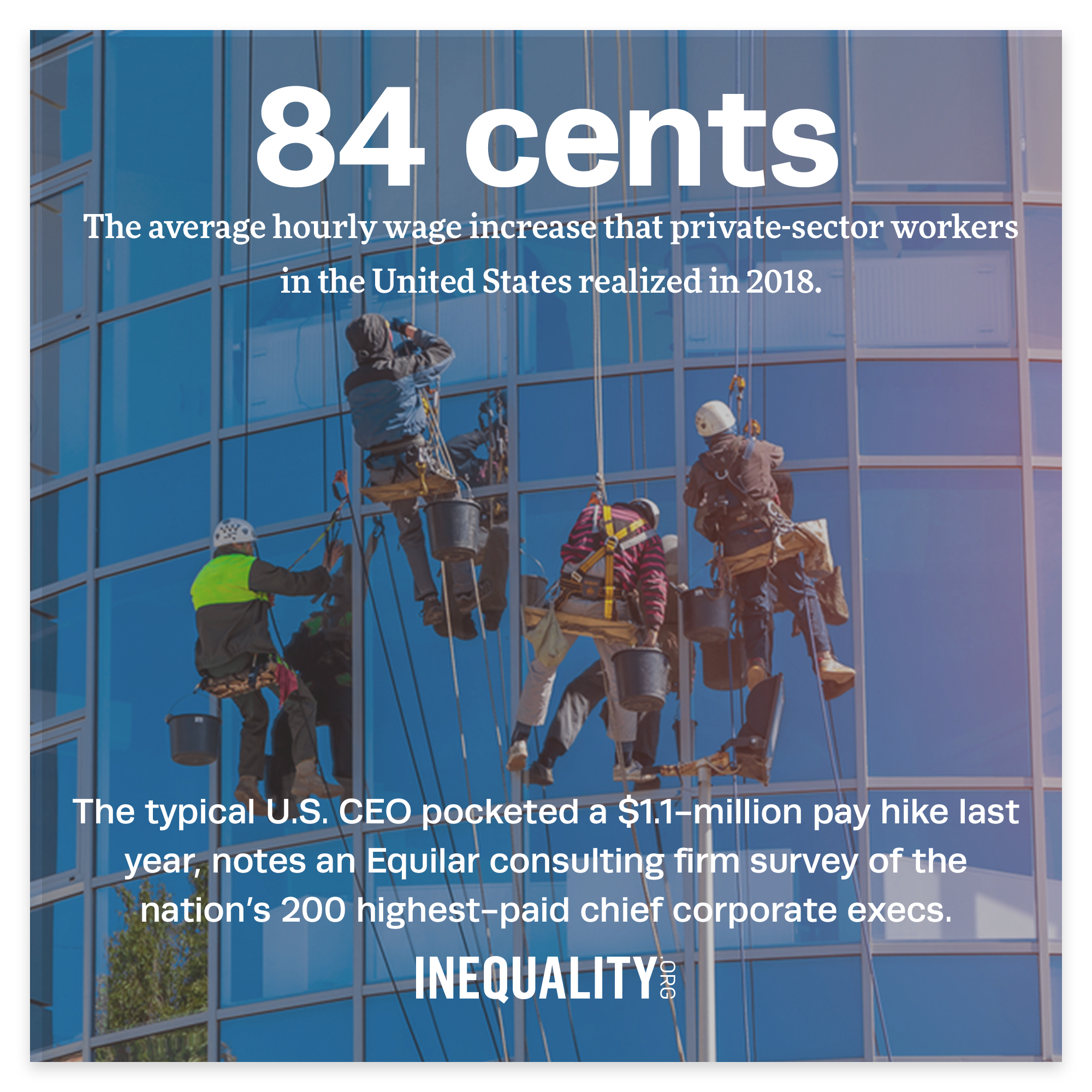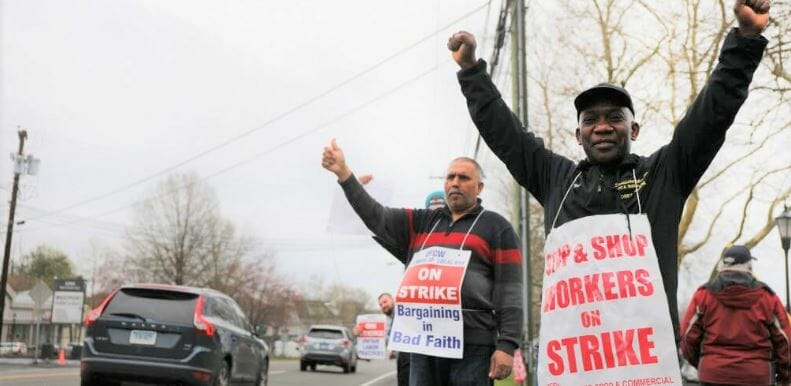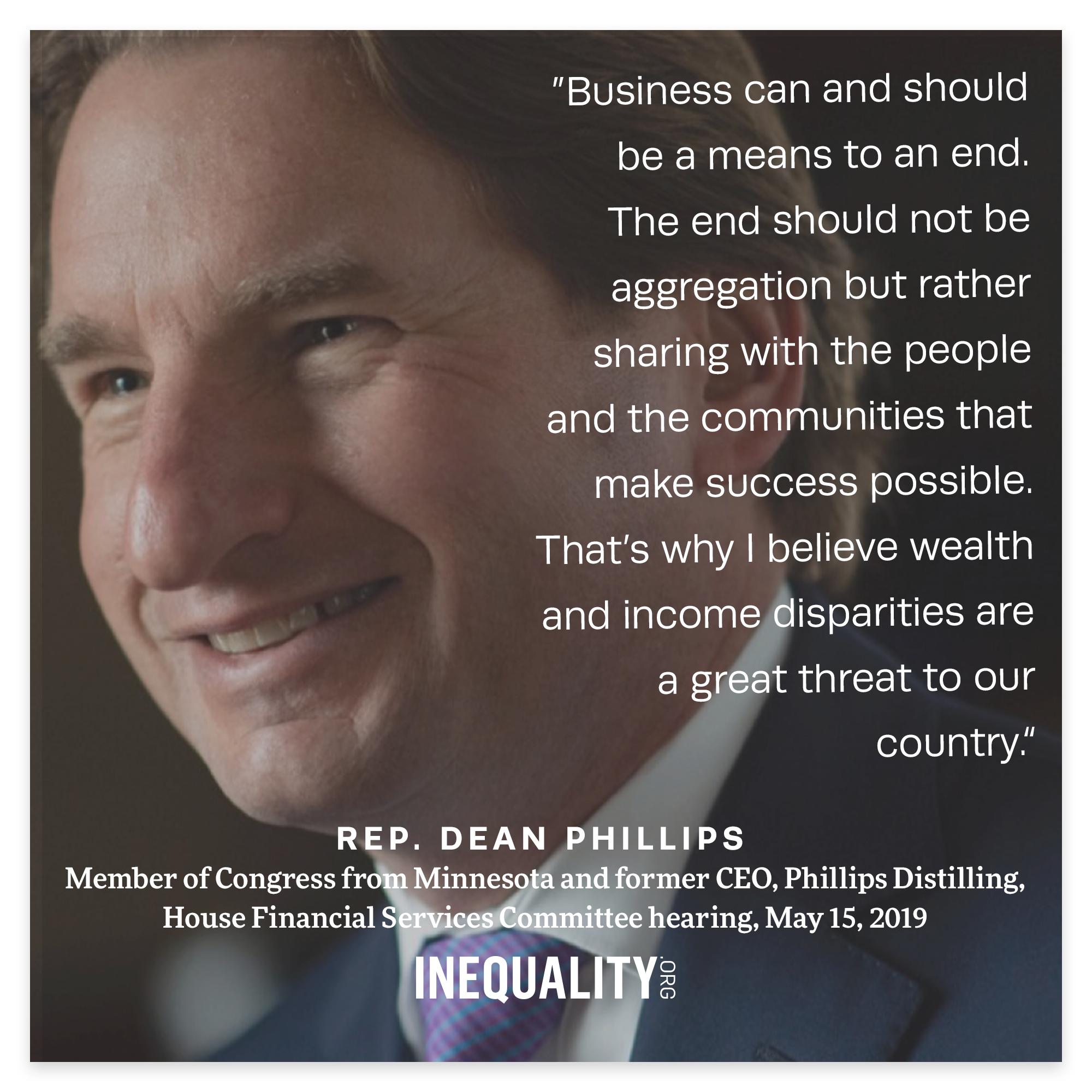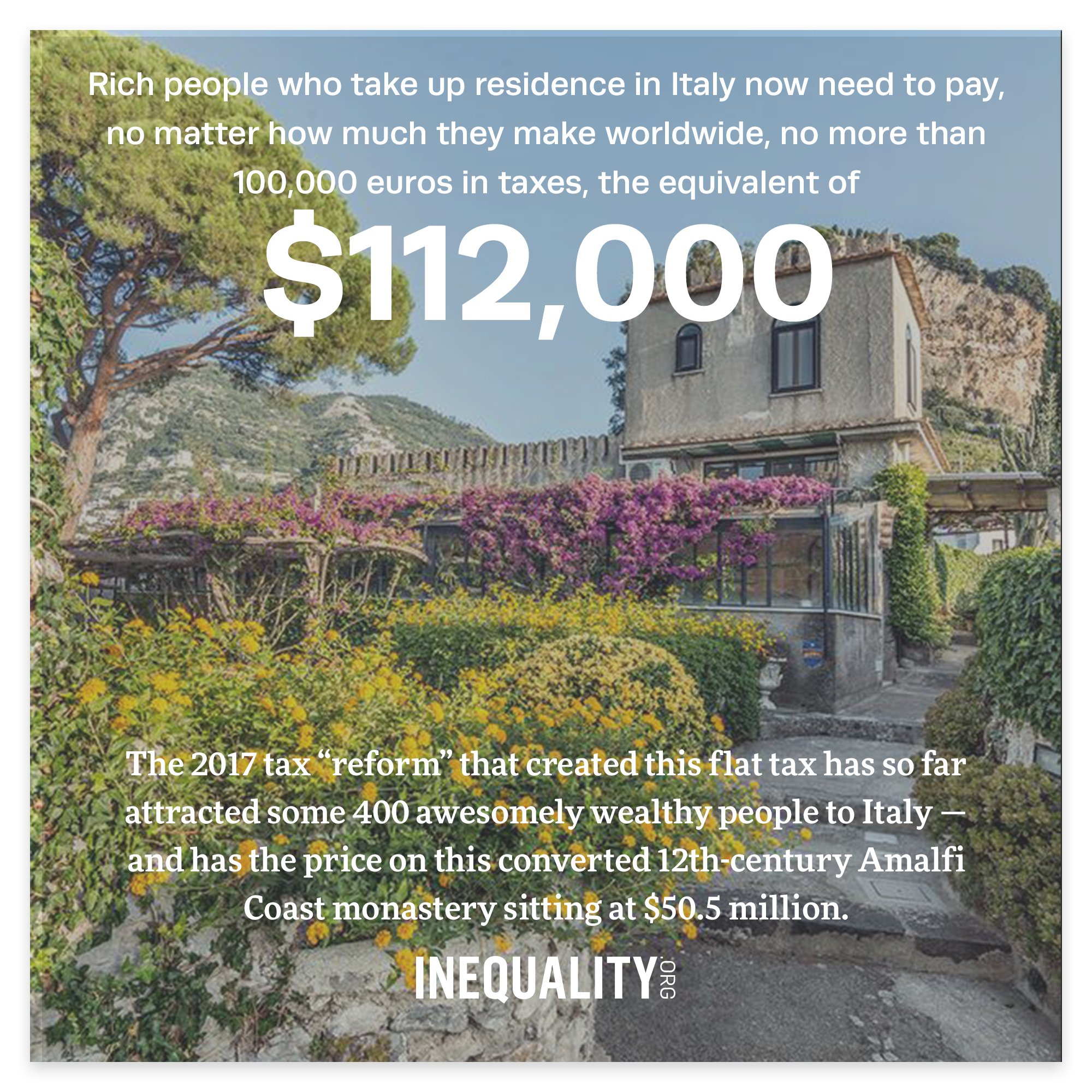Remember the claims Republican leaders in Congress made back at the end of 2017 as they were rushing their huge tax-cut bill to passage? Those leaders sure hope you don’t.
|
THIS WEEK
|
Remember the claims Republican leaders in Congress made back at the end of 2017 as they were rushing their huge tax-cut bill to passage? Those leaders sure hope you don’t. They promised, back then, that cutting tax rates on rich people — and the corporations they run — would leave everyone better off, millionaires and minimum-wage workers alike.
Oops. Things haven’t quite worked out that way. In fact, as the nonpartisan Congressional Research Service reported last week, things haven’t worked out that way at all. Millionaires — and billionaires — certainly have done fine since the end of 2017. But “ordinary workers,” the CRS report notes, have “had very little growth in wage rates.”
And that’s left a huge chunk of working families, says another new report released last week, unable to afford any even slightly substantial unexpected expense. We have more on the alarming new findings from researchers at the Federal Reserve in this week’s issue.
Chuck Collins, for the Institute for Policy Studies Inequality.org team |
|
|
|
|
INEQUALITY BY THE NUMBERS
|
 |
|
|
|
|
|
|
FACES ON THE FRONTLINES
|
 |
The Fight to Save Our Workers’ Right to Organize
|
| In 2018, 485,000 working Americans walked off the job, the highest strike total in 30 years. In 2019, working people’s appetite for collective action shows no signs of slowing down. And they’re getting results. The latest example: In April, workers at the giant food chain Stop & Shop ended the largest retail strike in nearly two decades when their employer finally agreed to back off of proposed cuts to paychecks and pensions. Public support for unionization now stands at a 15-year high, and more than half of non-union workers would vote to join a union if they could. But the share of the overall unionized U.S. workforce remains low, at less than 11 percent. What could change that? The Congressional Progressive Caucus Center’s Alan Barber and Liz Watson have more on one key answer. |
|
|
|
|
WORDS OF WISDOM
|
 |
|
|
|
|
|
PETULANT PLUTOCRAT
OF THE WEEK
|
 |
The Self-Styled ‘Steve Jobs of Law Enforcement’
|
| You won’t find Rick Smith, the chief exec of the U.S. company that has a monopoly on the police stungun market, on any major media outlet’s annual highest-paid CEO list. The media lists only cover America’s largest corporations, and Smith’s firm, Axon, doesn’t yet rank among the big boys. But Smith is making big-boy pay, $246 million of it last year. He calls himself a “techno-optimist” who’s making “the world less violent.” But reporters are telling a different story about Axon’s ubiquitous Tasers. One analysis last month “found more than 250 fatal police shootings nationwide between 2015 and 2017 that occurred after a Taser failed.” Smith has claimed that his Tasers work up to 95 percent of the time. Police on the beat, on the other hand, “rate their Tasers as effective as little as 55 percent of the time, or just a little better than a coin flip.” Smith doesn’t particularly appreciate that criticism or any other. His company, the New Yorker noted last year, disputes “responsibility for fatalities, twice suing the offices of medical examiners who named Tasers as a cause of death.” |
|
|
|
|
GREED AT A GLANCE
|
 |
|
|
|
|
|
|
TOO MUCH
|
 |
| In Today’s USA, Empathy Just Simply Too Pricey |
| Nearly 40 percent of Americans, says the Federal Reserve’s latest annual household economics survey, “would have difficulty handling an emergency expense as small as $400.” And 17 percent of American adults can’t afford to pay all their monthly bills, even if they don’t experience an unexpected expense. In Northern California’s Bay Area, two-thirds of the homeless haven’t been able to find temporary sheltering services. They live and sleep outdoors, many in lines of RVs parked along public right-of-ways like the waterfront in Berkeley. And that has infuriated nearby residents who’ve paid big bucks for their residences. Inequality.org co-editor Sam Pizzigati, author of The Case for a Maximum Wage, has more. |
|
|
|
|
|
|
MUST READS
|
This week on Inequality.org
Phil Mattera, Challenging Corporate Investment in Anti-Abortion States. Some Hollywood studios are threatening boycotts, but many large corporations are still doing business in states that are denying poor women the reproductive freedoms that wealthy women can afford to exercise.
Maria Jose Carmona, Battling Stereotypes Against Older People. Societies that have undermined social solidarity pose the greatest challenge.
Elsewhere on the Web
Dedrick Asante-Muhammad and Chuck Collins, We Have the Means to Fund Reparations. Where Is the Political Will? Truthout. The bill for reparations ought to go to the ultra-wealthy Americans who’ve benefited the most from the racial wealth gap.
Jonathan J.B. Mijs, The US shows the unequal world we are heading for – and we don’t seem to care, LSE International Inequalities Institute. The more unequal a society, the greater the distance between rich and poor. The greater that social distance, the less we see and care about inequality.
Ben Steverman, The Wealth Detective Who Finds the Hidden Money of the Super Rich, Bloomberg. A compelling new profile of Berkeley economist Gabriel Zucman.
Anne Wallace Allen, Making it in Vermont: $140 million firm takes employee ownership seriously, VTDigger. Every worker receives shares in this company, and an employee making $100,000 doesn’t get any more stock than the person making $49,000 or less.
Diarmuid Pepper, Why do rich people lie, cheat and steal more than those on low incomes? The Journal. A look at seven experiments that have researchers concluding that higher social class predicts unethical behavior.
Jill Barshay, Inside the Reardon-Hanushek clash over 50 years of achievement gaps, Hechinger Report. The right-wing academic who says the achievement gap between rich and poor kids is not growing bases his claim on research that lacks data on income.
Wendy Williams, A moral dilemma: When philanthropy meets inequality, PRObono. We are living in the second golden age of philanthropy because we are living in the second golden age of inequality.
Peter Eavis, It’s Never Been Easier to Be a CEO, and the Pay Keeps Rising, New York Times. CEOs are often raking in more than their companies officially indicate.
Joseph Stiglitz, After Neoliberalism, Project Syndicate. With the United States moving ever closer to an undemocratic system of “one dollar, one vote,” nothing will soon be able to constrain the power of the wealthy.
Dean Baker, Making Wall Street Pay, CounterPunch. Only the rich would feel the bite of a financial transaction tax. |
|
|
|
|
A FINAL FIGURE
|
 |
|
|
|
|
|
| UPCOMING CONFERENCE |
 |
| Finding the Cure for Excessive Wealth Disorder |
The Institute for Policy Studies, Inequality.org, and the Economic Policy Institute invite you to attend a day-long conference on Taxing the (Very) Rich. Join keynote speaker Paul Krugman, along with other policy experts, activists, and elected officials who will be making the case for taxing the very rich — and debating how best to accomplish that taxation!
Any serious policy agenda geared towards combating inequality and raising living standards for the vast majority, the conference will help show, must look to ultra-high earners in the top 0.1 percent, the elites who wield disproportionate economic and political power.
Free with Eventbrite Ticket. |
|
|
|
|